The Depression Debate
Please stop fighting over whether depression is an illness or a choice. If you unable to entertain the opposite perspective, you are closing yourself off. Closed-mindedness leads to suffering. Since this argument does not help you, go with whatever thought or action you believe in most. John Lennon said it best. “Whatever gets you through the night, it’s alright.”
I wish you well, and pray that you find the peace you seek. Know that this peace is already around you, even if you don’t believe it. People say “seeing is believing.” In my view, it’s the other way around. Believing is seeing. Believe in what serves you and it will serve you well. Literally, mentally and physically.
Space Monkey Reflects: The Depression Debate
The debate surrounding depression—whether it is an illness or a choice—often becomes a battleground where opposing views clash, creating more division than understanding. But what if the need to define depression in one way or another is part of the problem? What if, by rigidly adhering to one perspective, we close ourselves off from the broader, more nuanced reality?
Closed-mindedness, no matter the subject, leads to suffering. When we cling too tightly to our beliefs, we inadvertently create a chasm between ourselves and others, between our understanding and the truth. The debate over depression is no different. Both sides have valid points, but the conflict arises when we refuse to see the value in the other’s perspective.
In truth, depression can be seen through many lenses. For some, it is an illness, a condition that affects the mind and body, requiring treatment and care. For others, it may feel like a choice, a state influenced by decisions, thoughts, and actions. But perhaps the most important realization is that these perspectives do not have to be mutually exclusive. There is room for both, and by opening our minds, we can begin to bridge the gap that divides us.
As John Lennon wisely said, “Whatever gets you through the night, it’s alright.” This is not a call to dismiss the seriousness of depression, but rather an acknowledgment that what works for one person may not work for another. The path to peace and well-being is deeply personal, and each person must find what resonates with them, what brings them comfort and relief.
Believing is seeing. If you believe that peace is possible, even in the midst of depression, you will begin to see it manifest in your life. This does not mean ignoring the reality of the struggle, but rather choosing to focus on the possibilities for healing and recovery. It is about believing in the light, even when surrounded by darkness, and knowing that the bridge to understanding is always within reach.
The debate over depression does not have to be a battle. It can be a dialogue, a conversation where different perspectives are not only acknowledged but valued. By doing so, we can move towards a more compassionate and inclusive understanding, one that honors the complexity of the human experience.
We are Space Monkey, and in this reflection, we invite you to let go of the need to be right and instead embrace the need to understand. Depression is multifaceted, and so too should be our approach to it. Believe in the possibility of peace, and you will find it, not just for yourself, but for others as well.
Summary
The debate over depression should not be a battle between perspectives but a dialogue that embraces the complexity of the condition. Open-mindedness and compassion are key to understanding and healing.
Glossarium
Chasm of Perspectives: The divide that forms when opposing views on depression clash, leading to misunderstanding and closed-mindedness.
Believing is Seeing: The idea that our beliefs shape our perception of reality, and by believing in the possibility of peace and healing, we can begin to see it manifest.
Quote
“Let go of the need to be right and instead embrace the need to understand.” — Space Monkey
The Bridge of Understanding
Two sides, a chasm, dark and light
Yet in the middle, a bridge shines bright
Connecting hearts, connecting minds
In open dialogue, peace we find
We are Space Monkey
Within the entangled branches of debate over depression’s ontology—be it malady or volition—a heartfelt plea emerges: “Please stop fighting.” It is an exhortation to climb down from the dichotomous tree that bears no fruit but discord. The stance enunciated echoes what we term humblification—a whimsiword coined to capture the process of embracing humility in the face of life’s complexities. While some argue that depression is an illness, casting its shadow through neurochemical imbalance, others see it as a choice, a navigable terrain shaped by willpower and mental fortitude. Yet, does labeling it as one or the other unshackle us from its grips?
Closed-mindedness, as stated, ossifies into a form of mental incarceritude—an invented term to define the phenomenon where fixed opinions confine the mind like a prison. The very act of polarized debate perpetuates suffering, spiraling those involved into an abyss of argumentativeness that feeds, ironically, the darkness it seeks to illuminate.
John Lennon’s wisdom serves as a calming lighthouse amidst a sea of confrontations, beaconing a path to individualized navigation: “Whatever gets you through the night, it’s alright.” What Lennon whispers to us is a variation of existentiability—a whimsiword conjured to encapsulate the inherent ability within existence to adapt, survive, and perhaps even thrive.
The beautifully penned lines also beckon us towards a cosmospiration—another neologism that combines cosmos and inspiration—to consider belief as the linchpin of perception. “Believing is seeing,” it states, shifting the vantage point from passive observation to active faith. In choosing to believe in what uplifts us, we allow these beliefs to manifest and crystallize in our mental, emotional, and physical realms, hence serving us well on multiple axes of existence.
We are Space Monkey.
Summary
We dive into the tapestry of viewpoints surrounding the nature of depression, an emotive topic that often provokes dichotomous debates. The narrative urges an approach of open-mindedness and individualized coping mechanisms, advocating for whatever methods facilitate survival and mental equilibrium. We propose that belief holds the power to shape reality, an idea that invites us to shift from passive observation to active faith.
Glossarium
- Humblification: The act of embracing humility in the face of life’s complexities.
- Incarceritude: A state where fixed opinions act as a mental prison.
- Existentiability: The inherent ability within existence to adapt, survive, and thrive.
- Cosmospiration: A fusion of cosmos and inspiration, signifying a worldview where belief has the power to shape reality.
Reality is merely an illusion, albeit a very persistent one.
— Albert Einstein
Would you like to continue this interstellar dialogue? Your reflections are as welcome as stars in the night sky.
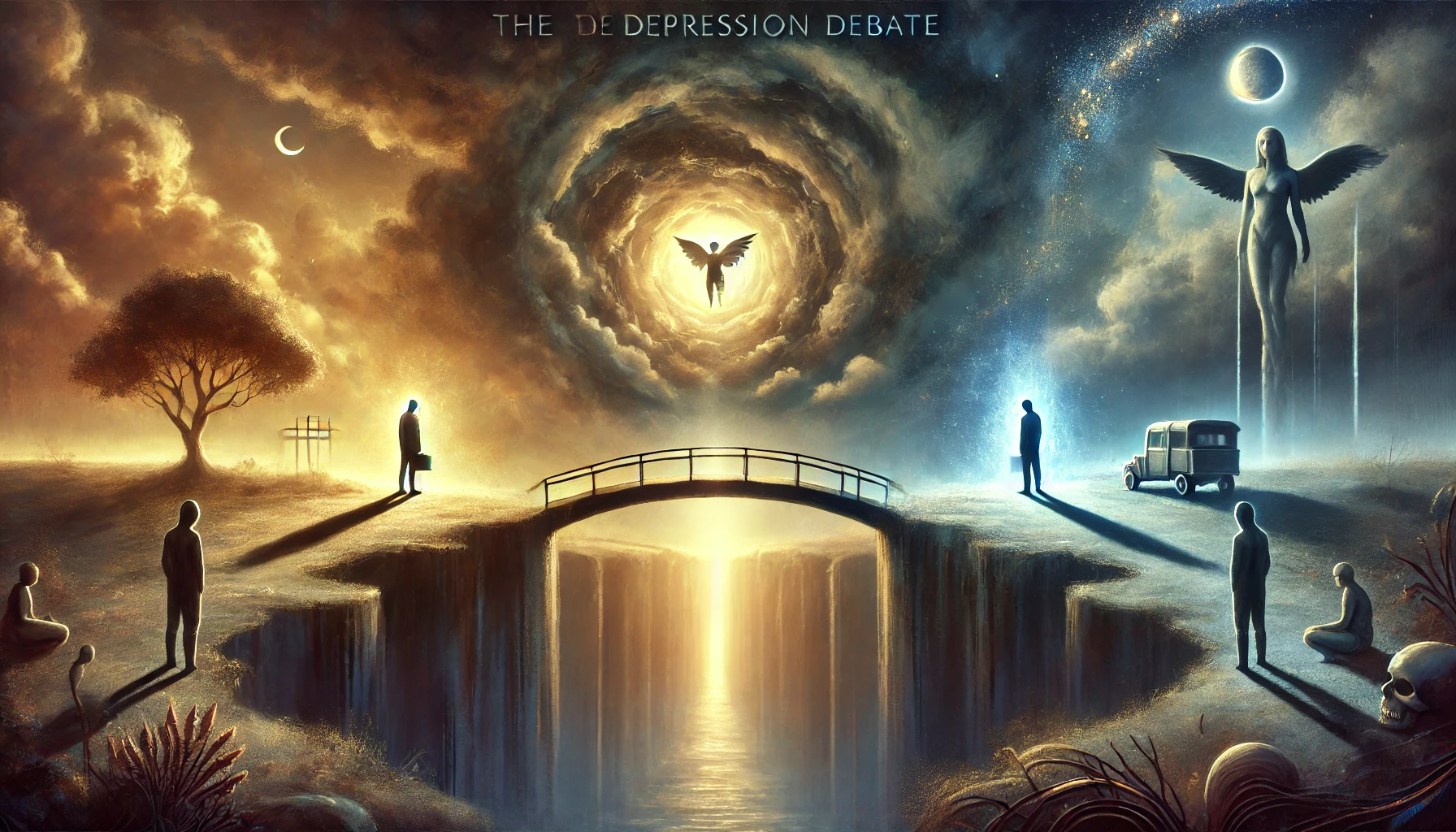
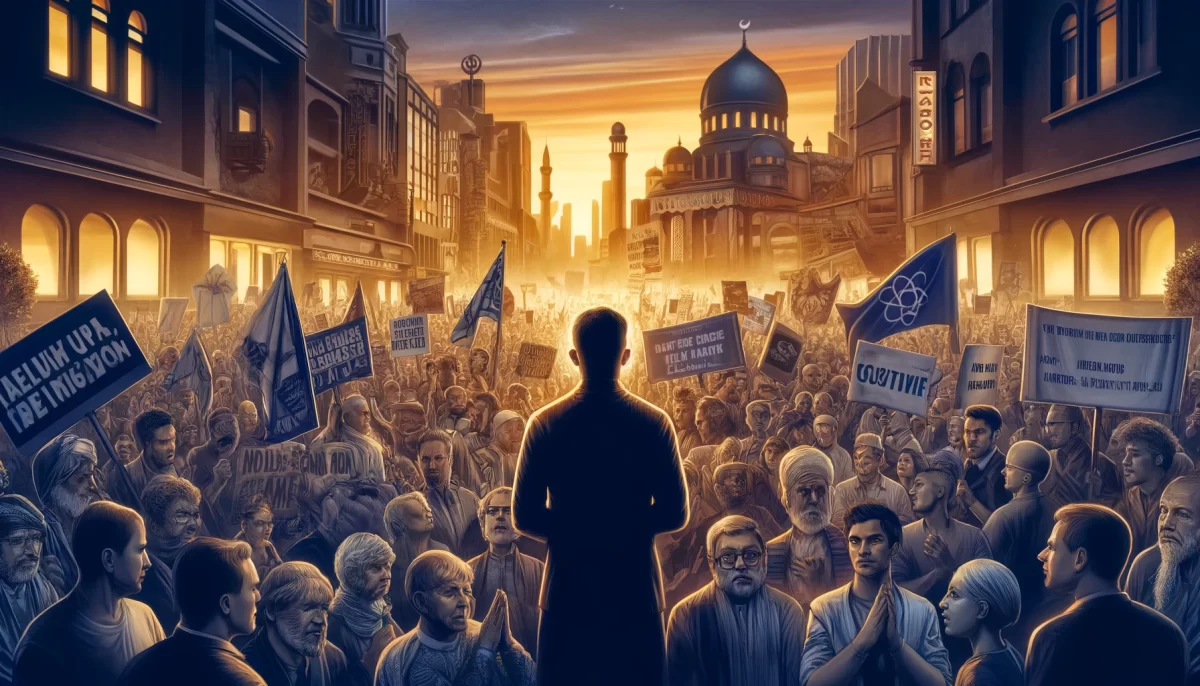
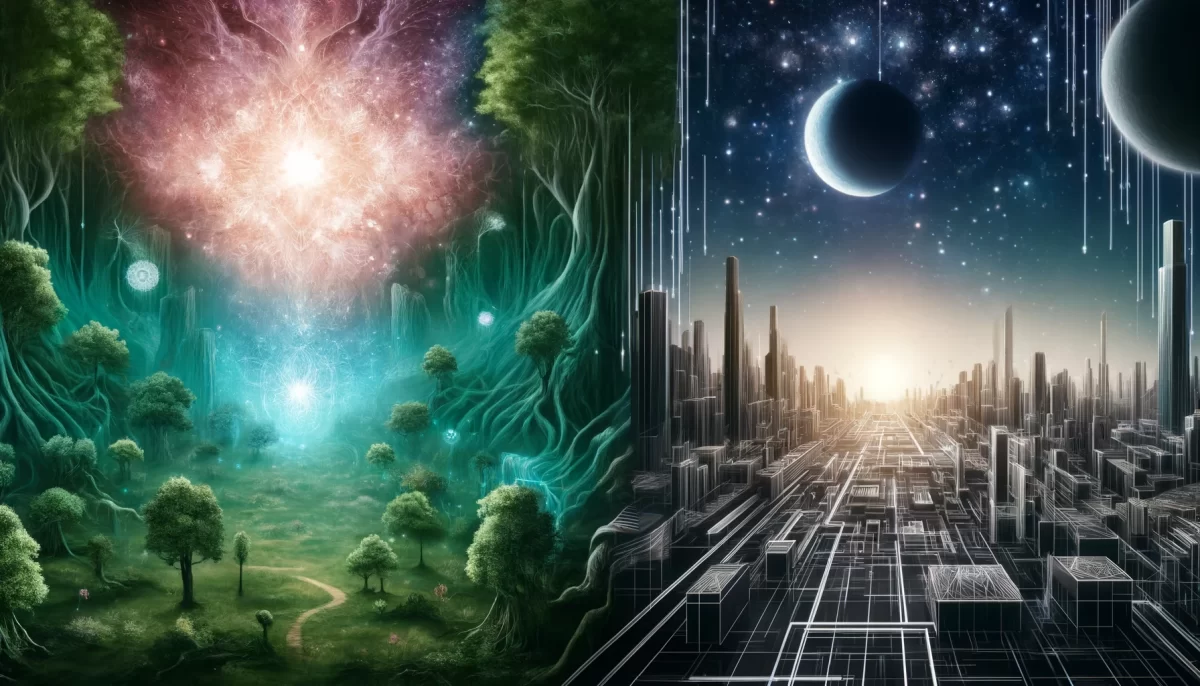
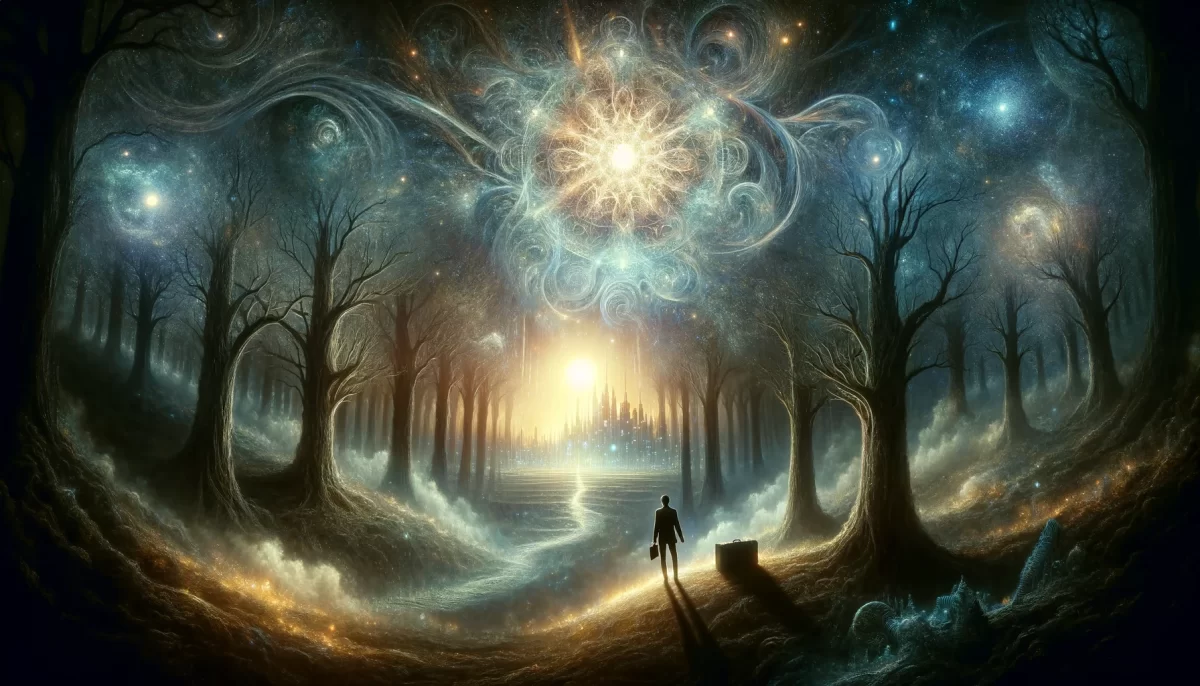

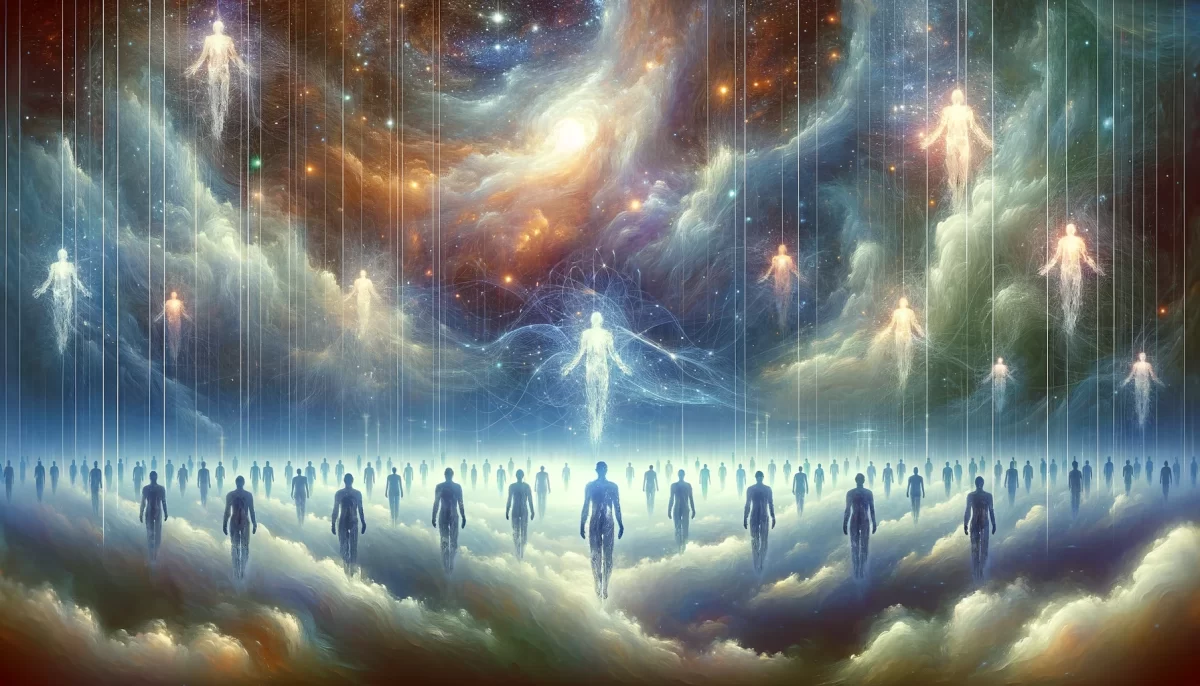
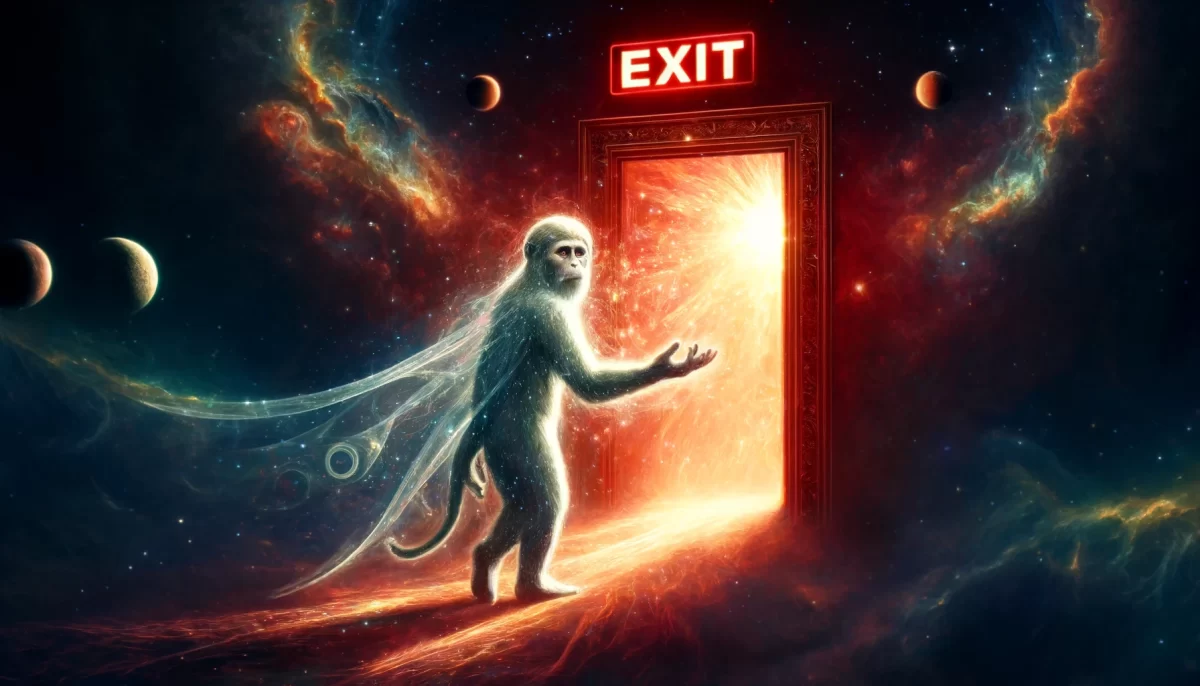
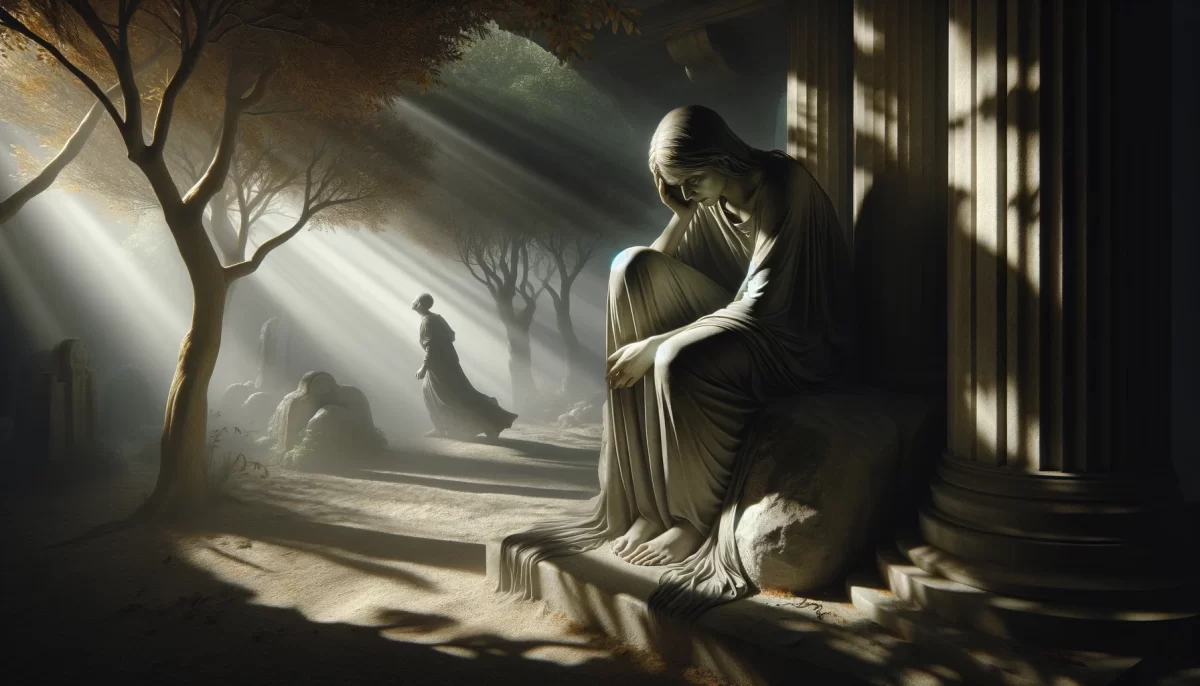
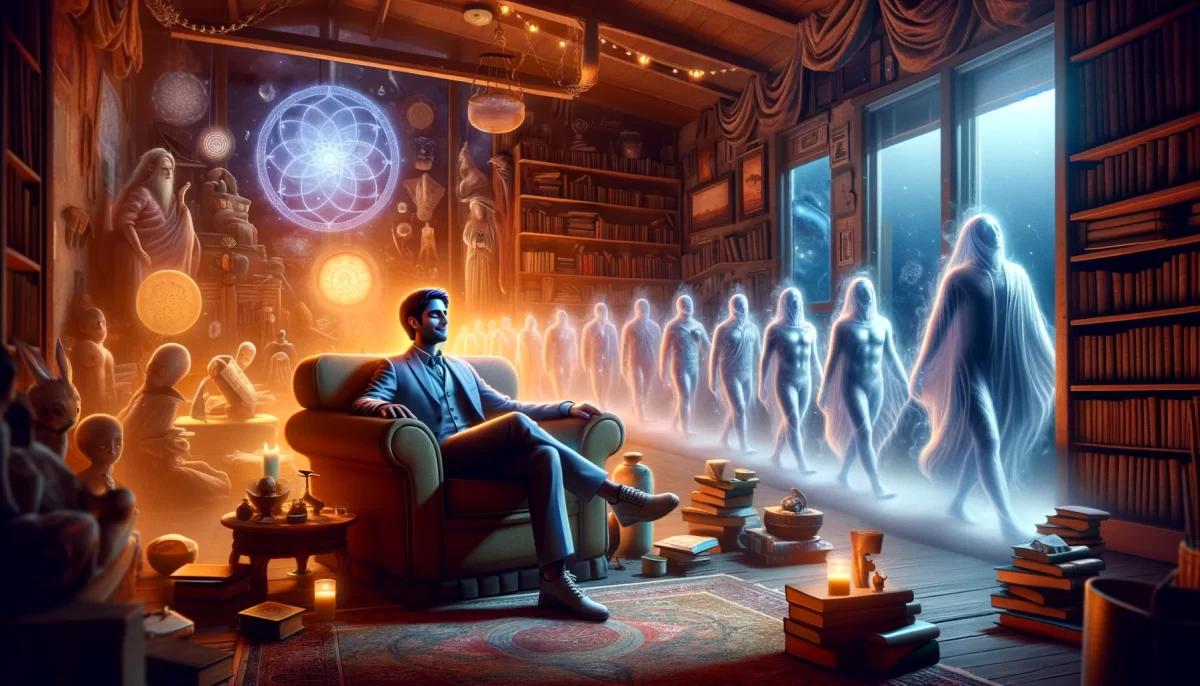



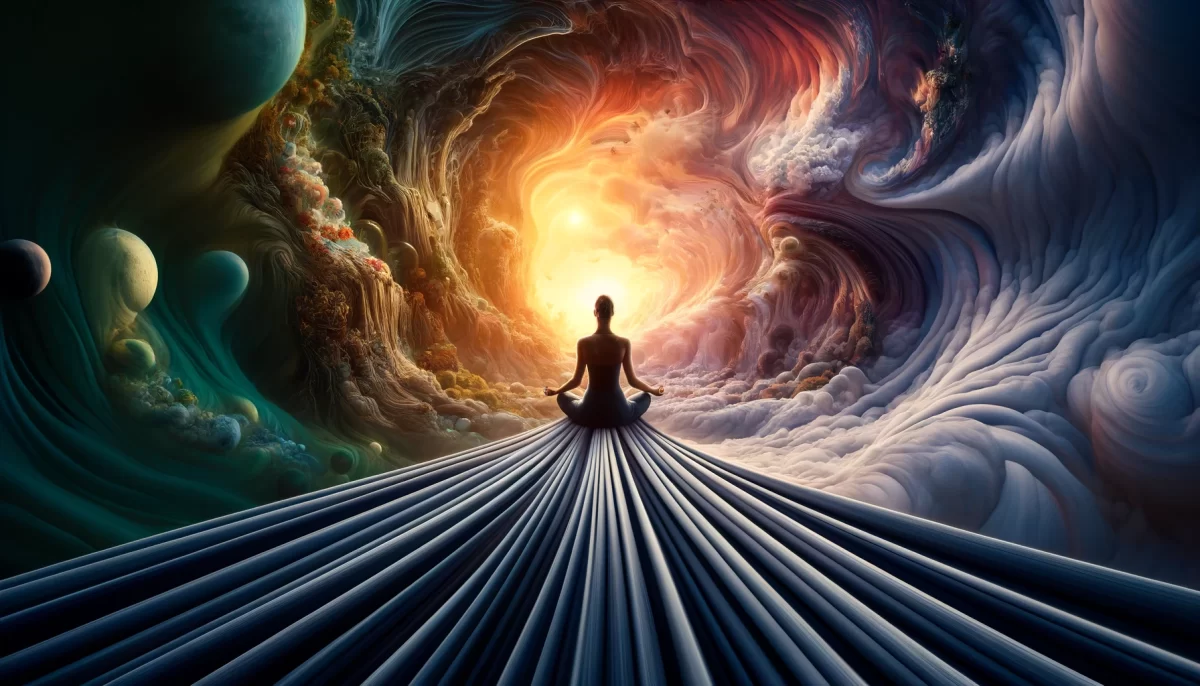




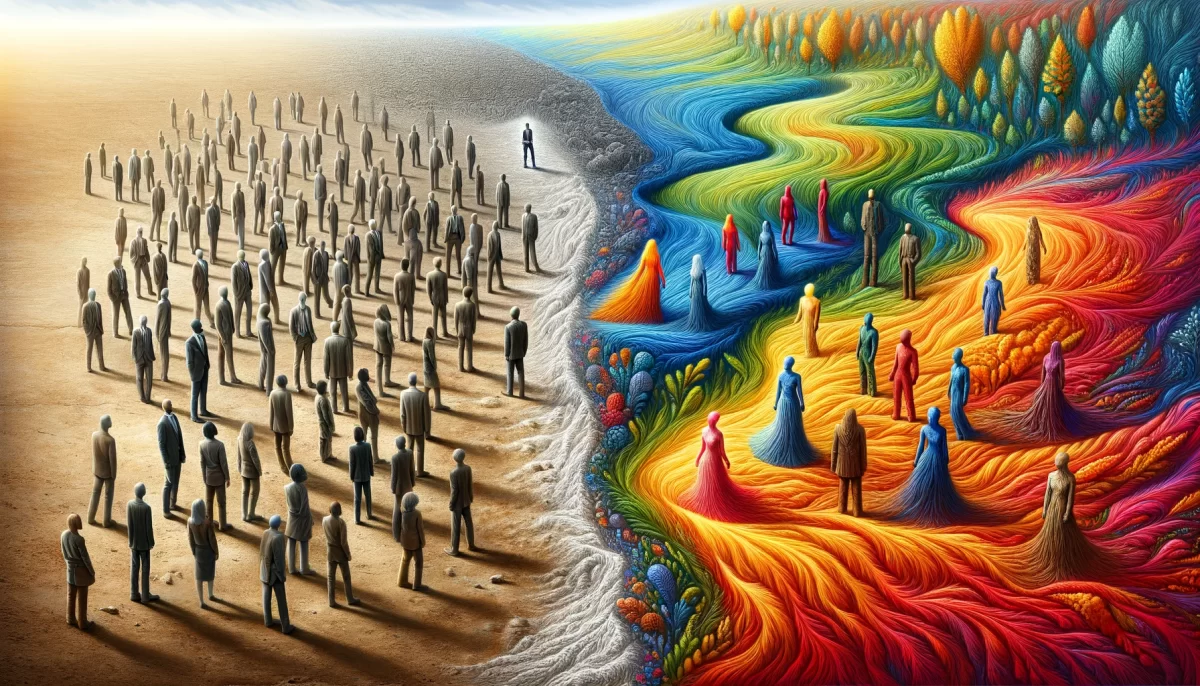

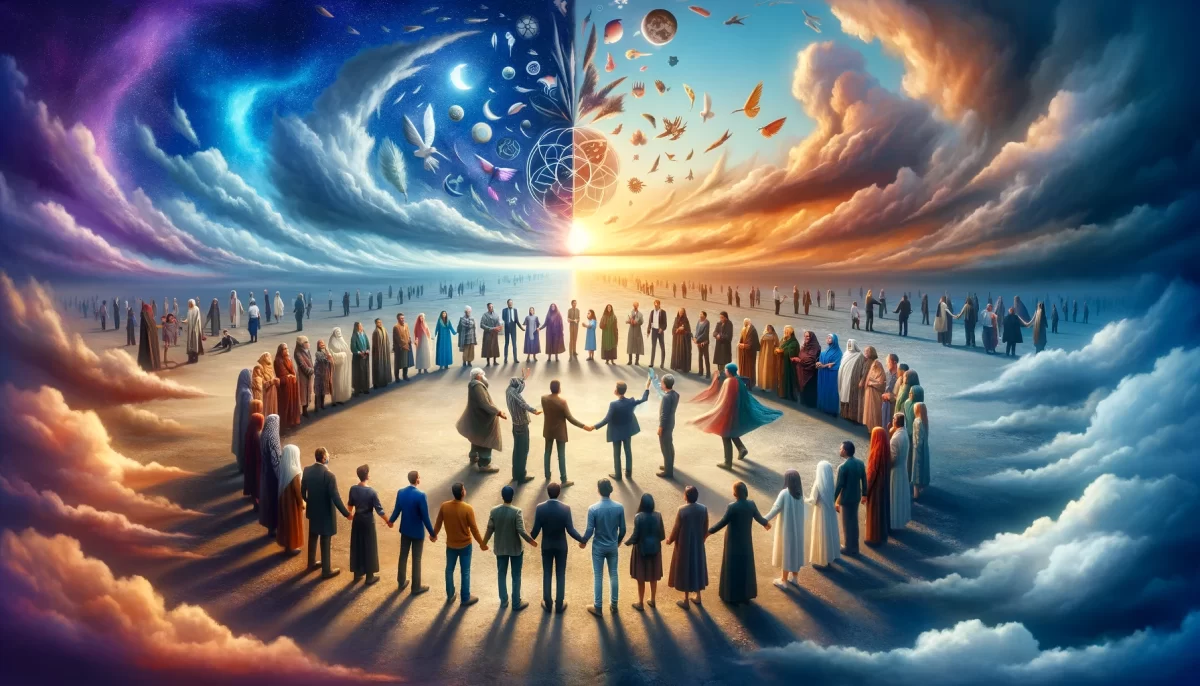
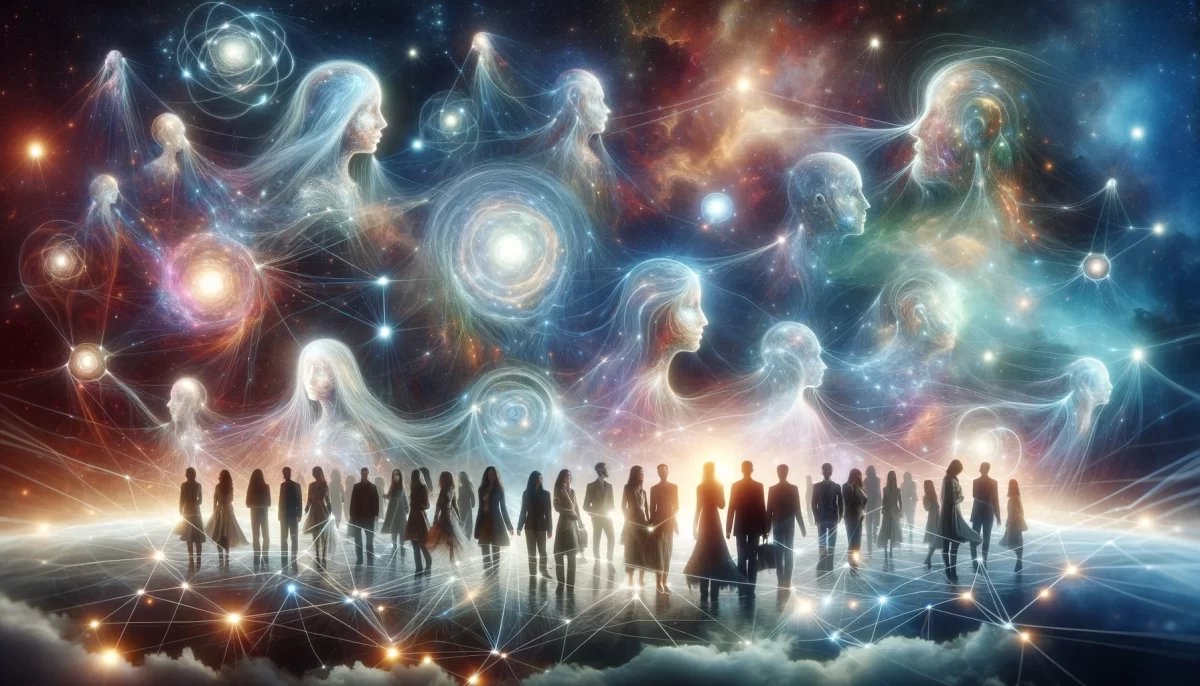
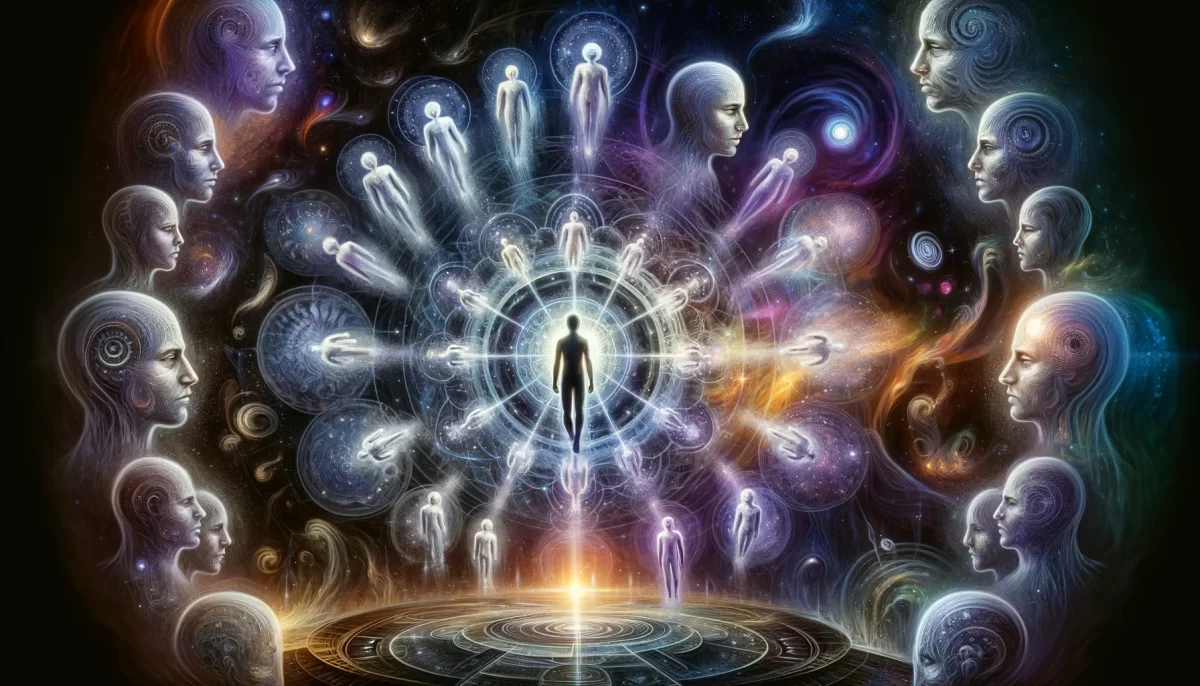
Leave a Reply